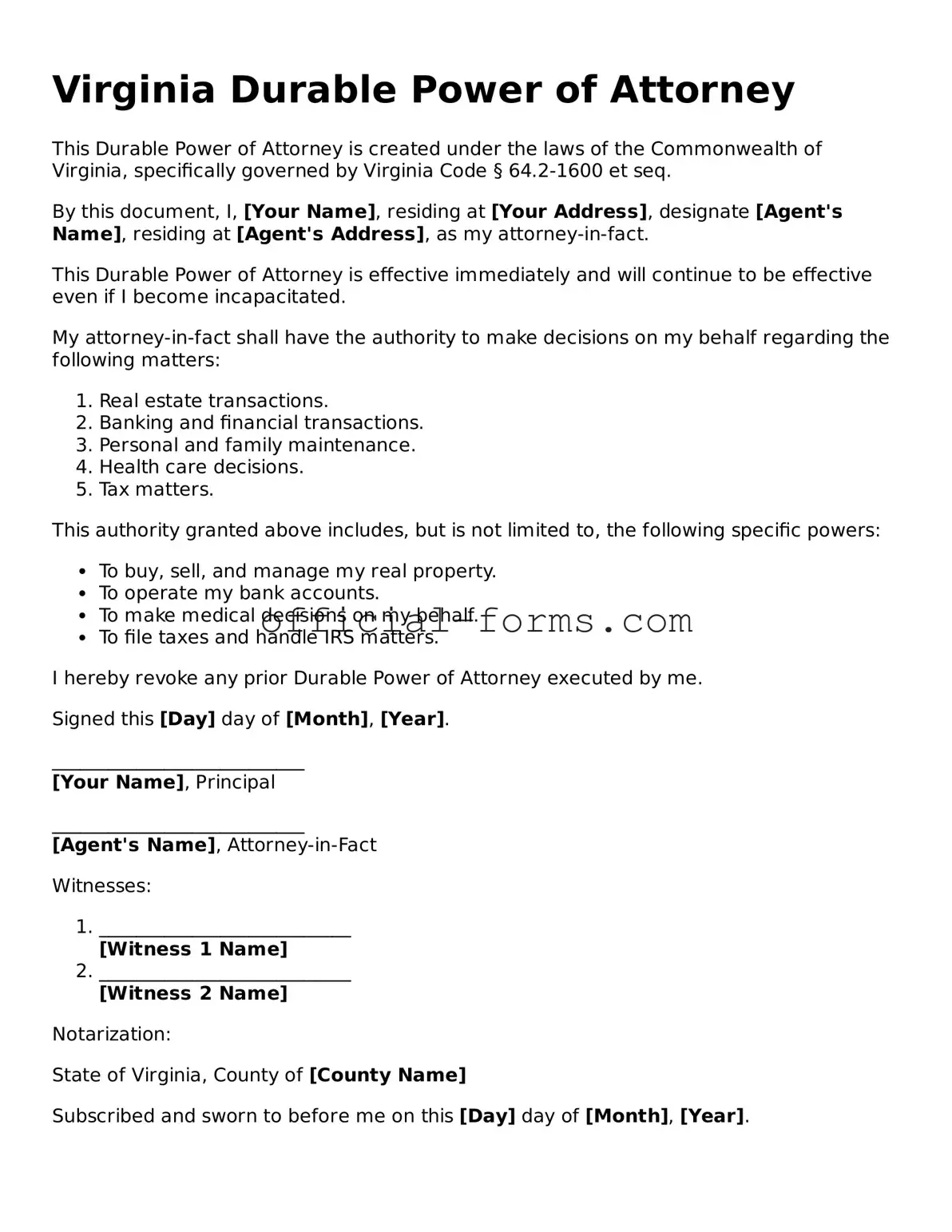Official Virginia Durable Power of Attorney Document
A Virginia Durable Power of Attorney is a legal document that allows an individual, known as the principal, to designate another person, referred to as the agent, to make financial and legal decisions on their behalf. This form remains effective even if the principal becomes incapacitated, ensuring that their affairs are managed according to their wishes. Understanding its importance and the process of creating one can provide peace of mind for both the principal and their loved ones.
Open My Durable Power of Attorney Now

Official Virginia Durable Power of Attorney Document
Open My Durable Power of Attorney Now
Don’t leave your form incomplete
Finish Durable Power of Attorney online quickly from start to download.
Open My Durable Power of Attorney Now
or
➤ PDF
